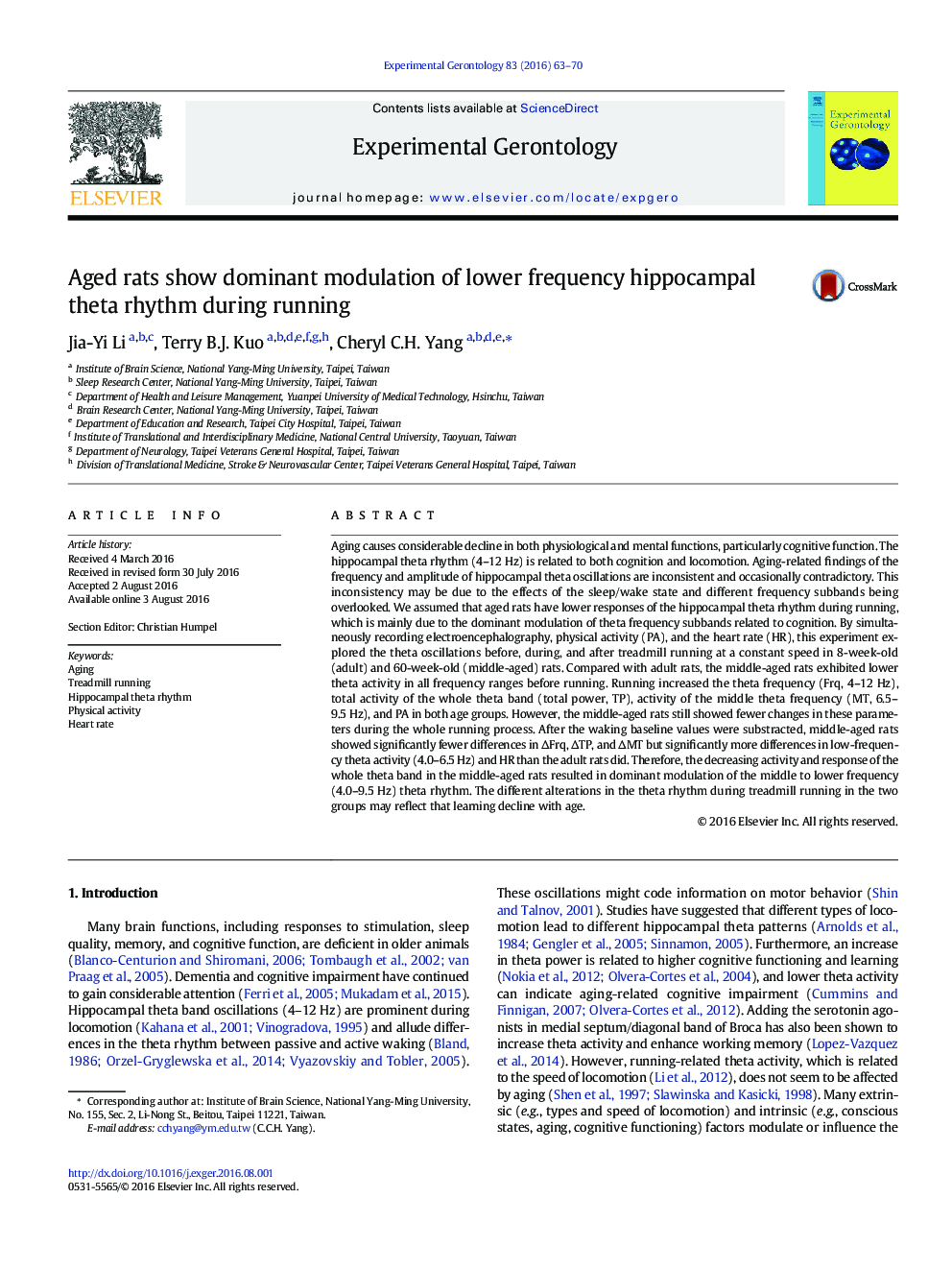| کد مقاله | کد نشریه | سال انتشار | مقاله انگلیسی | نسخه تمام متن |
|---|---|---|---|---|
| 1906092 | 1534858 | 2016 | 8 صفحه PDF | دانلود رایگان |
• Aged rats show small alterations of hippocampal theta rhythm during running.
• In aged rats, the lower range of theta rhythm is mainly modulated during running.
• The simplified theta rhythm may reflect aging-related cognitive decline.
Aging causes considerable decline in both physiological and mental functions, particularly cognitive function. The hippocampal theta rhythm (4–12 Hz) is related to both cognition and locomotion. Aging-related findings of the frequency and amplitude of hippocampal theta oscillations are inconsistent and occasionally contradictory. This inconsistency may be due to the effects of the sleep/wake state and different frequency subbands being overlooked. We assumed that aged rats have lower responses of the hippocampal theta rhythm during running, which is mainly due to the dominant modulation of theta frequency subbands related to cognition. By simultaneously recording electroencephalography, physical activity (PA), and the heart rate (HR), this experiment explored the theta oscillations before, during, and after treadmill running at a constant speed in 8-week-old (adult) and 60-week-old (middle-aged) rats. Compared with adult rats, the middle-aged rats exhibited lower theta activity in all frequency ranges before running. Running increased the theta frequency (Frq, 4–12 Hz), total activity of the whole theta band (total power, TP), activity of the middle theta frequency (MT, 6.5–9.5 Hz), and PA in both age groups. However, the middle-aged rats still showed fewer changes in these parameters during the whole running process. After the waking baseline values were substracted, middle-aged rats showed significantly fewer differences in ΔFrq, ΔTP, and ΔMT but significantly more differences in low-frequency theta activity (4.0–6.5 Hz) and HR than the adult rats did. Therefore, the decreasing activity and response of the whole theta band in the middle-aged rats resulted in dominant modulation of the middle to lower frequency (4.0–9.5 Hz) theta rhythm. The different alterations in the theta rhythm during treadmill running in the two groups may reflect that learning decline with age.
Journal: Experimental Gerontology - Volume 83, October 2016, Pages 63–70
